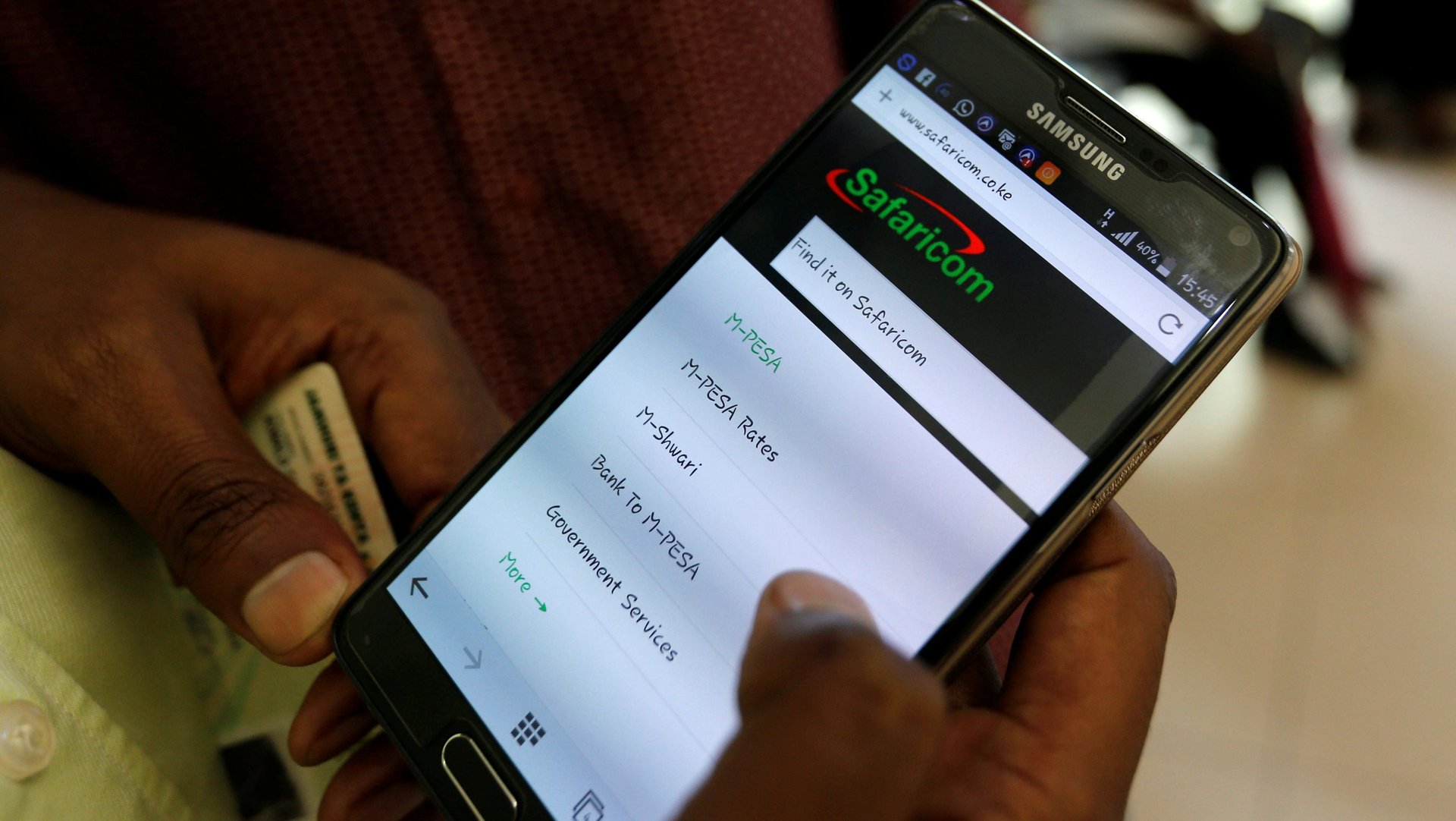Kenyan banks are closing in on what they think will be the perfect M-Pesa disruptor
Early next year, Kenyan banks are expected to unveil a digital and mobile money transfer platform to rival M-Pesa’s longstanding dominance as the scramble for cashless payments intensifies.


Early next year, Kenyan banks are expected to unveil a digital and mobile money transfer platform to rival M-Pesa’s longstanding dominance as the scramble for cashless payments intensifies.
The plan started about four years ago when banks, in a rare display of unity, discussed establishing a system that would allow mobile phone subscribers to send or transfer money within banks without having to rely on the network operators. At present, banks depend on the mobile money transaction platforms such as M-Pesa, Airtel Money or Orange Money to allow their customers to make an assortment of transactions such as transferring, depositing, withdrawing, borrowing money or settling bills in real time.
Safaricom alone works with over 40 banks, serving over 3.1 million customers on a monthly basis through M-Pesa. However, the telco’s director of corporate affairs, Steve Chege says Safaricom already operates in a highly competitive environment with both international and local players. So, the potential for mobile and digital payments is still enormous for new entrants. “We believe they are launching more digitized services in order to meet the changing needs of their customers,” Chege tells Quartz.
The first major step toward setting up the single mobile and digital money transfer system happened earlier this year after the establishment of the Integrated Payments Service Ltd (IPSL) to facilitate direct funds transfer amongst banks without using third party entities such as M-Pesa. The system is in a pilot phase with industry players, and the expectation is it will be launched in early 2017.
Customers will be able to use a variety of platforms such as mobile phones, ATMs, point of sale terminals, the internet or over the counter in real time to different bank accounts. Currently,, this is only possible between two accounts within the same bank.
“Right now, it will allow person to person payments, where one can pay from one account to the other,” says Kenya Bankers Association chief executive Habil Olaka.
“Of course, it has the flexibility that may subsequently, depending on the demand and user requirements other services (such as bill payments, loan applications or repayments etc) be leveraged on the platform.”
Before the banks came up with the idea in 2012, they realized that they were losing about $22 million to mobile money providers yearly at the time. Now, besides earning millions of dollars in commissions, the banks are keen on keeping such proceeds within the industry.
At present, M-Pesa controls about 85% of the person-to-person money transfer valued at approximately $3.6 billion in the second quarter of this year (pdf, pg.11). A distant second if Equity Bank’s mobile money transaction service, Equitel at about 15% valued at approximately $630 million.
Seeing the huge potential in the mobile money transaction services, Equity Bank, which has about 10 million customers, officially launched Equitel, a Mobile Virtual Network Operator (MVNO) to serve as its mobile money transaction service.
“The fact that over 90% of payments in the country are still done in cash means there is sufficient room for a multitude of competitors in the market,” Chege says.